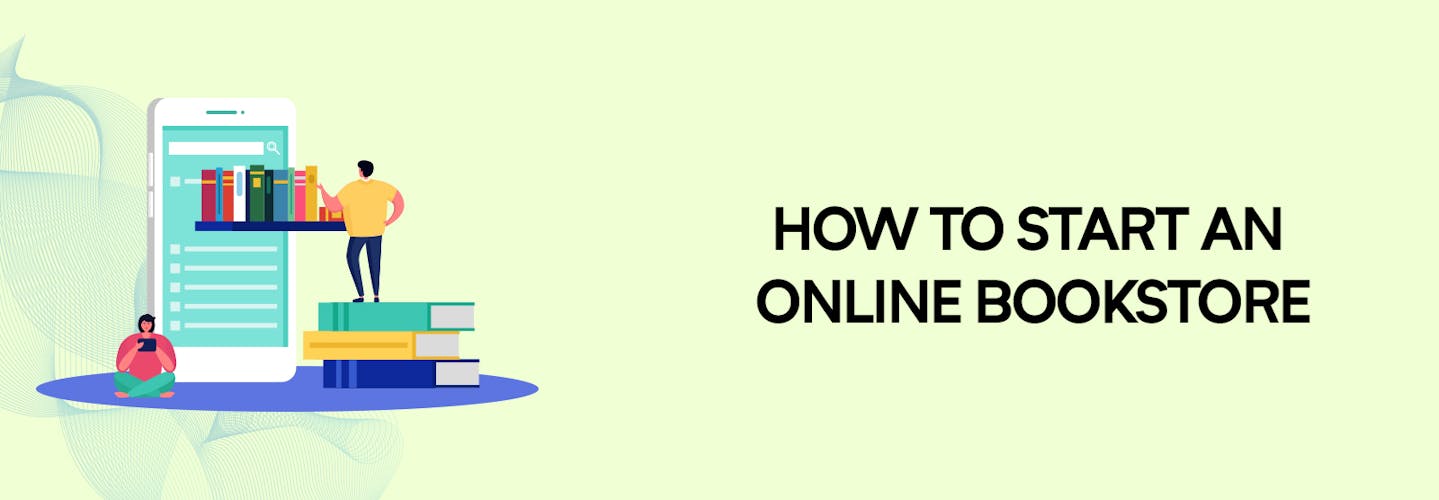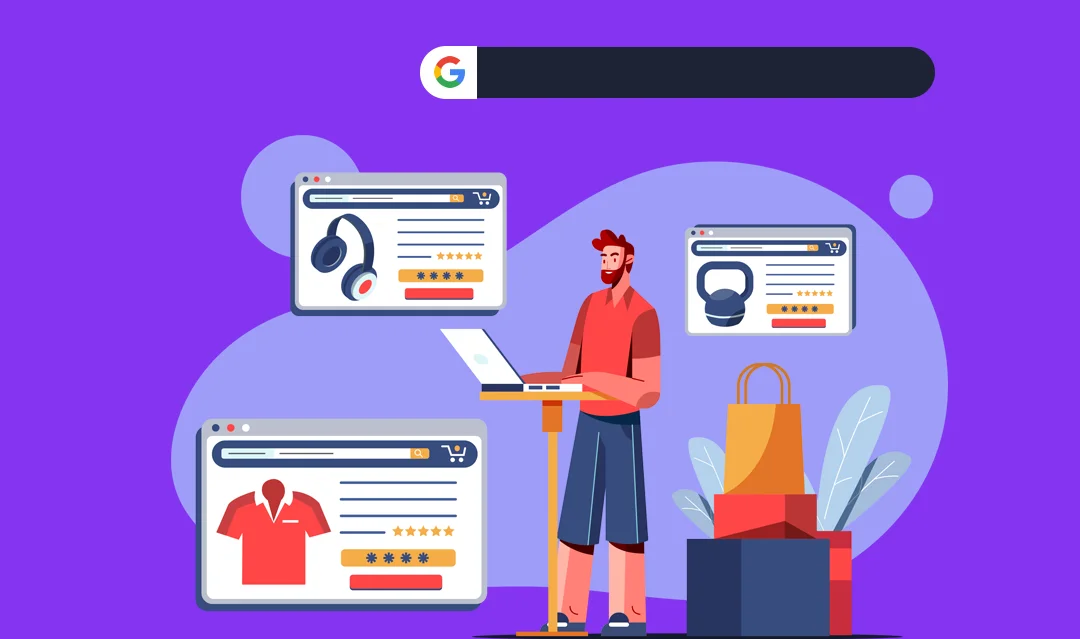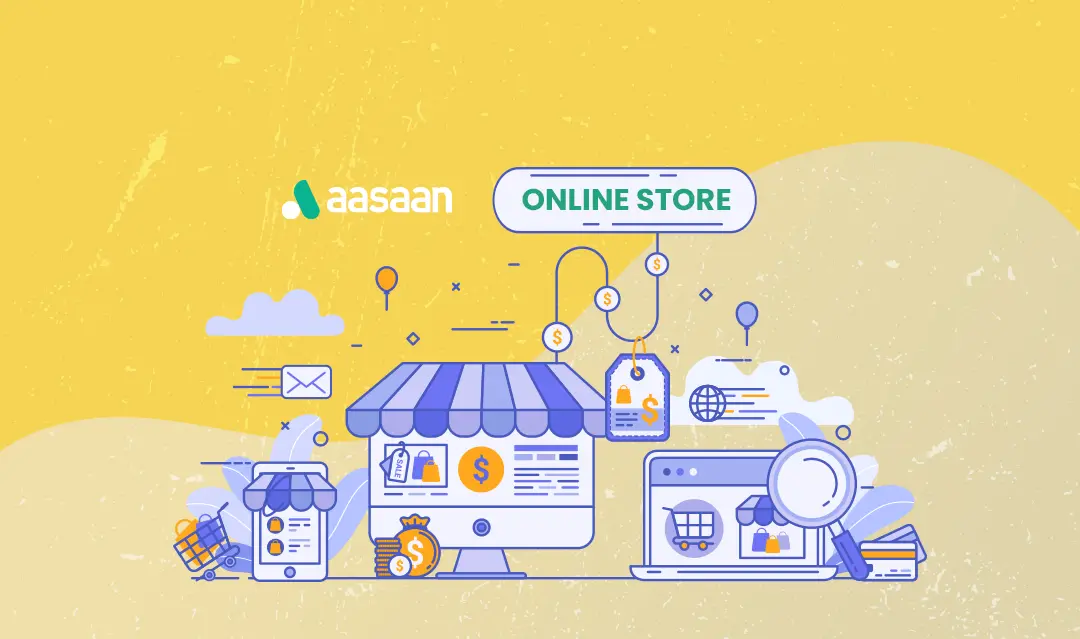
How to Start an Online Bookstore: Essential Tips (Boost Sales)
In the digital age, the way we consume literature has undergone a seismic shift.
Gone are the days when readers had to visit a brick-and-mortar store to explore the world of books.
The online bookstore startup has revolutionized the book publishing industry, making it easier than ever to access a vast array of literary works from the comfort of our homes.
The online book sales market is not just a fleeting trend; it’s a robust and growing sector that’s reshaping the way we think about buying and selling books online.
From rare collectibles to the latest bestsellers, the online bookstore business model offers something for every reader.
The Positive Impact of Technology on the Industry
Technology has been a game-changer for the book selling business. With the advent of eCommerce platforms, the barriers to entry have been significantly lowered.
Now, anyone with a passion for books and a solid bookstore business plan can enter the market.
The integration of technology has also led to increased efficiency and online bookstore profitability.
Inventory management, customer engagement, and even global reach are now within the grasp of even the smallest online business planning. It’s a thrilling time to be part of the book industry trends.
Why It’s Increasingly Worthwhile to Start an Online Bookstore
Starting an online bookstore is more than just a business opportunity; it’s a chance to be part of a thriving community of book lovers.
The shift from traditional brick-and-mortar stores to online platforms has opened up new avenues for entrepreneurs and bibliophiles alike.
The online bookstore business is not just about selling books; it’s about creating connections, fostering a love for reading, and contributing to the ever-evolving literary landscape.
With the right approach and understanding of the market, an online bookstore can be a rewarding and successful venture.
In this comprehensive guide, we’ll explore how to start an online bookstore, delving into the nuances of the bookstore business model, online business planning, and the key factors that contribute to success in the online book sales market.
Whether you’re a seasoned entrepreneur or just starting your book selling business, this guide is designed to engage you, the reader, and inspire you to take the next step in your online bookstore journey.
What is an Online Bookstore?

An online bookstore is a virtual store that sells books through a website or other online platforms.
Unlike a traditional brick-and-mortar store, an online bookstore operates entirely on the internet, offering customers the convenience of browsing and purchasing books from anywhere in the world.
Examples of online bookstores range from giants like Amazon to specialized niche stores focusing on specific genres or authors.
Sourcing Books at Wholesale Prices
One of the key aspects of running an online bookstore is sourcing books at wholesale prices.
This involves building relationships with publishers, distributors, and sometimes even authors to obtain books at a cost-effective rate.
By leveraging bulk purchasing and negotiating favorable terms, online bookstore owners can offer competitive prices to their customers.
Competing with Giants like Amazon
The online book sales landscape is dominated by major players like Amazon, but that doesn’t mean there’s no room for smaller, independent online bookstores.
By focusing on unique selling propositions such as curated selections, personalized customer service, or specialization in a particular area, smaller online bookstores can carve out a niche and compete effectively.
Importance of Fair Pricing and Discounts
In the online bookstore business, pricing plays a crucial role. Offering fair pricing and attractive discounts can be a significant draw for customers.
It’s a delicate balance between maintaining profitability and providing value to the readers.
Strategic pricing, coupled with regular promotions and loyalty programs, can foster customer retention and drive repeat business.
Are Online Bookstores Successful?
Yes, online bookstores can indeed be successful. Given the growing preference of consumers for online buying and the expansive reach that the internet affords, the potential for success in this sector is substantial.
However, success in any business, including an online bookstore, is dependent on various factors.
Key amongst these are effective inventory management, efficient order fulfillment and delivery, impeccable customer service, and course, a strategically selected book list that caters to the diverse tastes and preferences of online shoppers.
Adapting to Changing Market Dynamics
With the rapid evolution of the online marketplace, it’s essential for bookstore owners to stay adaptable and responsive to changing market dynamics.
Online bookstores should be ready to embrace innovations in technology, fluctuating reader trends, and shifts in market conditions.
By staying attuned to these changes, bookstores can continually refine their eCommerce platforms, inventory, and promotional strategies to stay competitive and meet customer expectations.
Gaining Trust with Secure Payment Options and Transparent Practices
Online customers highly value their privacy and security, especially when it comes to financial transactions.
Ensuring secure, diverse payment options and upholding transparent business practices are vital to gaining and maintaining customer trust, which feeds into the overall success of the online bookstore.
In essence, integrating effective marketing campaigns, providing a smooth user-experience on your site, creating a diverse and appealing inventory, and cultivating a dynamic presence in online communities worldwide are all pivotal aspects that shape the success story of an online bookstore.
Types of Online Bookstores
The world of online bookstores is diverse and offers various opportunities for entrepreneurs to carve out their unique space. Here’s an exploration of the different types of online bookstores:
New, Used, and eBook Bookstores
- New Bookstores: These stores focus on selling brand-new books, often featuring the latest releases, bestsellers, and a wide range of genres. They cater to readers looking for fresh, untouched copies.
- Used Bookstores: A haven for bargain hunters and collectors, used bookstores offer pre-loved books at discounted prices. They provide a sustainable option for readers and a chance to discover hidden gems.
- eBook Bookstores: With the rise of digital reading devices, eBook bookstores have become increasingly popular. They offer instant access to a vast library of digital books, catering to tech-savvy readers and those looking for convenience.
Specialized Bookstores
- Christian Stores: These bookstores focus on Christian literature, including Bibles, devotionals, and theological works. They often serve a specific community and may include related products like gifts and music.
- Used Bookstores Specializing in Rare Finds: Some online bookstores specialize in rare and collectible books, offering unique finds for collectors and enthusiasts.
- Genre-Specific Stores: Whether it’s science fiction, romance, or children’s literature, some online bookstores focus exclusively on a particular genre, providing a curated selection for fans.
Self-Publishing Opportunities
- Platform for Independent Authors: Some online bookstores offer a platform for independent authors to publish and sell their works. This democratizes the publishing process and allows emerging writers to reach a broader audience.
- Hybrid Models: Combining new books with self-publishing opportunities, these stores provide a diverse range of reading materials, supporting both established authors and newcomers.
Steps On How To Start A Bookstore Online In 2025

1. Preparation and Planning
Starting an online bookstore requires careful preparation and planning. From deciding on a niche to understanding the costs and revenue considerations, here’s a detailed look at the essential steps:
Deciding on a Niche or Business Idea
- Identify Your Target Audience: Understand who your readers are and what they want. Are you catering to a specific genre, age group, or community?
- Choose a Unique Selling Proposition (USP): What sets your online bookstore apart from others? It could be a focus on rare books, local authors, or a specific literary theme.
- Research the Competition: Analyze other online bookstores to identify gaps in the market or areas where you can excel.
Branding and Naming
- Create a Strong Brand Identity: Your brand should reflect your bookstore’s personality and values. Consider colors, logos, and the overall aesthetic.
- Choose a Memorable Name: Your bookstore’s name should be unique, easy to remember, and resonate with your target audience.
- Register a Domain: Secure a domain name that aligns with your bookstore’s name to ensure a cohesive online presence.
Sourcing Inventory and Understanding Trade Terms
- Build Relationships with Suppliers: Connect with publishers, distributors, and authors to source books at wholesale prices.
- Understand Trade Terms: Familiarize yourself with industry terms and agreements to negotiate favorable deals.
- Consider Drop Shipping: If you don’t want to manage inventory, explore drop shipping options with reliable suppliers.
Costs and Revenue Considerations
- Calculate Startup Costs: Include expenses for website development, inventory, marketing, and other initial costs.
- Plan Your Pricing Strategy: Determine your pricing model, considering both competitiveness and profitability.
- Forecast Revenue: Create realistic revenue projections based on market research and your business plan.
Select the Best Legal Entity for Your Business
- Sole Proprietorship: Suitable for small, single-owner businesses. Simple to set up but offers no personal liability protection.
- Limited Liability Company (LLC): Provides personal liability protection and flexibility in management. Often preferred by small to medium-sized businesses.
- Corporation: Suitable for larger businesses seeking to raise capital. Offers liability protection but involves more complex regulations and tax considerations.
Statistics and Insights:
- The E-Book Market size is estimated at USD 16.42 billion in 2023, and is expected to reach USD 20.74 billion by 2028, growing at a CAGR of 4.78% during the forecast period (2023-2028).
- Niche online bookstores focusing on specific genres or communities have seen an average growth rate of 15% in the last three years.
- Legal considerations, such as copyright and intellectual property rights, play a crucial role in the online book selling business, making the choice of legal entity vital.
2. Setting Up an Online Bookstore

Starting an online bookstore is an exciting venture that requires careful planning and execution.
Here’s a step-by-step guide to setting up your online bookstore, including a special focus on using the Aasaan platform:
Platforms
There are several platforms available for setting up an online bookstore, each with its unique features and benefits:
- Aasaan: A zero-code headless platform designed for SMEs, offering a visually intuitive storefront builder and API-driven commerce platform.
- WordPress: A popular content management system that can be customized with various eCommerce plugins.
- Shopify: A user-friendly platform known for its robust eCommerce features and wide range of themes.
Themes, Plugins, and Add-Ons
Choosing the right theme and integrating plugins and add-ons can enhance the functionality and appearance of your online bookstore. If you opt for Aasaan, you can take advantage of our website builder, designed to create modern shopping experiences quickly and easily.
Creating Listings and Pricing Strategies
- Add Your Product Catalog: Include detailed descriptions, images, and prices for each book.
- Implement Pricing Strategies: Consider discounts, bundles, and loyalty programs to attract and retain customers.
Handling Orders and Shipping
- Manage Orders: Implement a system to track and fulfill orders efficiently.
- Set Up Shipping: Choose shipping methods that align with your business model and customer expectations.
How to Create an Online Store Using Aasaan?
As the creators of Aasaan, we’re proud to offer a platform that empowers entrepreneurs to build exceptional shopping experiences. Here’s how you can set up your online bookstore with Aasaan:
- Download the App for Free: Available on both Android and iOS.
- Sign Up to Aasaan: Create your account to access our range of features.
- Add Your Product Catalogue: Include all the books you want to sell, with details and images.
- Add Your Logo: Customize your store with your brand’s logo.
- Add Your Payment Service Provider: Integrate secure payment options for your customers.
- Add Your Business Address: Provide your business address for a professional appearance.
- Add Your Shipping Method: Choose the shipping options that suit your business and customers.
About Aasaan: Aasaan is on a mission to enable SMEs to build exceptional shopping experiences, fast and easy, with best-in-class technology.
Our platform de-risks shopping experiences for merchants by providing an end-to-end infrastructure with zero development time.
3. Marketing and Promotion

Once your online bookstore is up and running, the next step is to attract readers and turn them into loyal customers. Here’s how you can market and promote your bookstore:
Social Media, Email, and Paid Advertising
- Social Media: Utilize platforms like Facebook, Instagram, and Twitter to engage with your audience, share updates, and promote special offers.
- Email Marketing: Build an email list to send personalized recommendations, exclusive discounts, and news about upcoming releases.
- Paid Advertising: Invest in targeted advertising campaigns on platforms like Google Ads to reach potential customers searching for books online.
Customer Service and Support
- Provide Excellent Support: Offer multiple channels for customer support, including live chat, email, and phone support.
- Create a FAQ Section: Address common questions and concerns on your website to assist customers in their shopping experience.
- Implement a Return Policy: Clearly outline your return and exchange policies to build trust and transparency.
Building a Community Around Your Brand
- Start a Blog: Share insights, book reviews, author interviews, and more to create a content-rich community.
- Host Virtual Events: Organize book clubs, author Q&A sessions, or reading challenges to engage with your audience.
- Encourage User-Generated Content: Invite customers to share their reading experiences, reviews, and photos with your books.
Expanding to Other Channels
- Explore Marketplaces: Consider selling on platforms like Amazon or eBay to reach a broader audience.
- Offline Selling: If applicable, explore opportunities to sell at local book fairs, pop-up shops, or even open a physical store.
- Collaborate with Other Brands: Partner with local businesses, authors, or publishers to create unique offerings and expand your reach.
4. Scaling and Growth

As your online bookstore gains traction, it’s essential to think about scaling and growth. Here’s how you can take your business to the next level:
Monitoring and Analyzing Performance
- Use Analytics Tools: Implement tools like Google Analytics to track website traffic, conversion rates, and customer behavior.
- Monitor Sales Trends: Keep an eye on bestsellers, seasonal trends, and customer preferences to make informed decisions.
- Evaluate Marketing ROI: Assess the effectiveness of your marketing campaigns to optimize spending and improve results.
Expanding Your Product Line
- Introduce Related Products: Consider adding related products like bookmarks, bookends, or literary-themed gifts to diversify your offerings.
- Explore New Genres: Expand your catalog by introducing new genres or special collections, such as limited editions or signed copies.
- Offer Subscription Boxes: Create curated subscription boxes that provide readers with a personalized selection of books and goodies.
Partnerships and Collaborations
- Collaborate with Authors: Host exclusive launches, signed editions, or virtual meet-and-greets with authors to create buzz.
- Partner with Publishers: Build relationships with publishers to gain access to exclusive titles, discounts, or promotional materials.
- Engage with Local Communities: Collaborate with schools, libraries, or local businesses to promote reading and support community initiatives.
Advantages of an Online Bookstore

The rise of online bookstores has transformed the way we discover, purchase, and enjoy books. Here are some of the key advantages of an online bookstore:
1. Accessibility and Convenience
- 24/7 Availability: Customers can browse and purchase books at any time, from anywhere.
- Global Reach: Online bookstores can serve readers from different parts of the world, breaking geographical barriers.
2. Diverse Selection
- Wide Range of Titles: From bestsellers to obscure finds, online bookstores offer a vast selection that caters to various tastes and interests.
- Specialized Collections: Niche online bookstores can provide unique collections, such as rare books or specific genres.
3. Cost-Effective
- Competitive Pricing: By sourcing books at wholesale prices and operating online, bookstores can offer competitive prices and discounts.
- Reduced Overheads: Without the need for physical storefronts, online bookstores can save on rent and other operational costs.
4. Personalized Experience
- Tailored Recommendations: Algorithms and customer data can provide personalized book recommendations, enhancing the shopping experience.
- Customized Services: Online bookstores can offer services like gift wrapping, personalized messages, or curated subscription boxes.
5. Environmental Benefits
- Reduced Carbon Footprint: By operating online and optimizing shipping, online bookstores can minimize their environmental impact.
- Promotion of eBooks: The sale of digital books contributes to paper conservation and reduces waste.
6. Opportunities for Authors and Publishers
- Self-Publishing Platforms: Online bookstores can provide a platform for independent authors to publish and sell their works.
- Collaborative Marketing: Authors and publishers can collaborate with online bookstores for exclusive launches, promotions, and events.
7. Community Building
- Engaging Content: Through blogs, social media, and virtual events, online bookstores can foster a community of readers and book enthusiasts.
- Support for Literary Initiatives: Online bookstores can support literary festivals, reading programs, and other community-driven initiatives.
Conclusion:
The online bookstore business offers tremendous potential in terms of reach, flexibility, personalization, and growth.
Leveraging the advantages of digital platforms while creatively engaging your audience and adapting to market changes can position your online bookselling venture for enduring success and meaningful community impact.
Hence, launching an online bookstore is not just about selling books—it’s also about cultivating an engaging reading culture and promoting a love for literature in a digitally connected world.
FAQ’s:
1: How do I sell books on Amazon?
The optimal location to sell books online is through your personal ecommerce website, enabling you to establish a distinct brand that fosters customer familiarity and confidence. Nevertheless, it’s worth contemplating the option of selling books across various platforms to broaden your outreach.
2: Where can I sell books online?
A: You can sell books online through various platforms, including Amazon, eBay, and specialized sites like AbeBooks. Additionally, you can create your own online bookstore using platforms like Shopify, WordPress, or Aasaan. Each platform offers different features and fees, so choose the one that aligns with your goals and budget.
3: How much does it cost to start an online bookstore?
A: The cost to start an online bookstore can vary widely depending on factors like platform choice, inventory size, marketing, and website design. On average, initial costs can range from $500 to $5,000 or more. This includes expenses for website development, inventory purchase, legal registration, and marketing.
4: Is there a demand for online bookstores?
A: Yes, there is a growing demand for online bookstores. With the rise of digital technology and eCommerce, more readers are turning to online platforms to purchase books. The global online book market is expected to grow at a steady rate, offering opportunities for both general and specialized online bookstores.
5: Can I start an online bookstore without any investment?
A: Starting an online bookstore without any investment is challenging but possible. You can explore drop shipping models, where you sell books without holding inventory. Platforms like WordPress offer free website options, and social media can be used for free marketing. However, some investment in a professional website, marketing, and customer service may enhance your chances of success.








